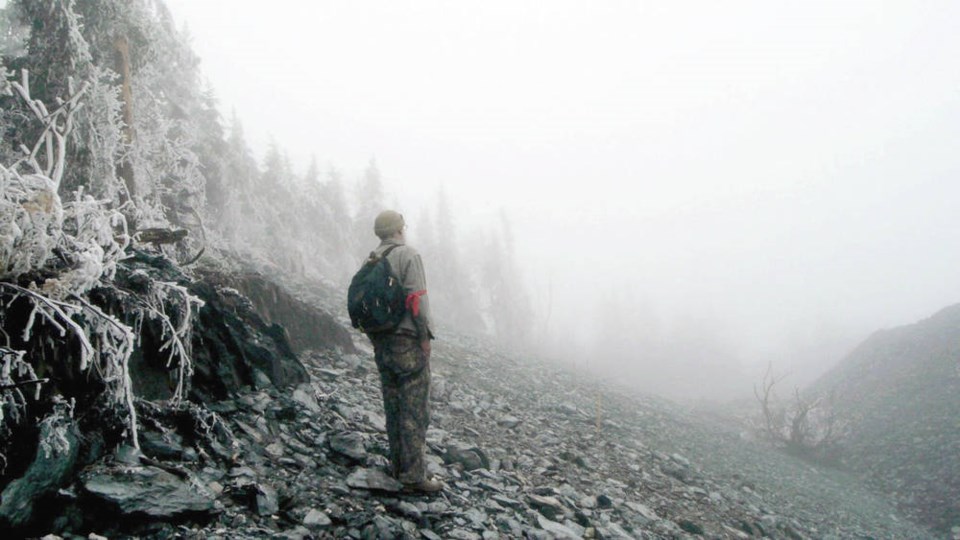What: Battle for the Planet of the Humans
When: Tuesday, Oct. 27, 2020, 6:30 p.m.
Tickets: $16 from universe.com
Note: The website link to the event will be emailed to ticketholders one hour prior to start time; guests will need to have a device that can stream audio and video.
The viewing audience for Planet of the Humans, a documentary that skewers the clean-energy movement, has a glass-half-full decision to make before the opening credits roll: Approach the film with a degree of skepticism, or give the arguments made by writer-director Jeff Gibbs a fair shake.
Navigating the complex issue is more difficult than it would appear, given the topic being discussed in the film. The truth probably lies somewhere in the middle.
With rabble-rouser Michael Moore as executive producer, Planet of the Humans has received its share of pointed critical analysis, not unlike other Moore films that ask similarly uncomfortable questions. Critics of Gibbs — of which there are many, the Michigan-based director readily admits — claim that he’s using outdated data in his arguments, especially where his examination of solar panels and the poor efficiency rates of those promoted by Tesla co-founder Elon Musk are concerned.
But many op-ed takedowns of Gibbs and his film in the mainstream media have not been fair and balanced, he argued. “What we’re learning is that most of our critics are funded by the same large corporate foundations and billionaires that we criticize in the film.”
Gibbs will discuss these and other issues brought about by the release of the film during a live virtual event, Battle For the Planet of the Humans, set for 6:30 tonight. The event, exclusive to Victoria, is part of a North American tour to promote the film. Victoria residents with tickets will have access to the discussion via an exclusive link, giving them the opportunity to ask questions of both Gibbs and Ozzie Zehner, his co-producer on the film. If previous events of this ilk are anything to go by, Zehner is expecting a spirited discussion with its share of heated moments.
“Reactions from audiences [who’ve seen the film] have been overwhelmingly positive,” Zehner said. “It is really a small group of people who are causing all the fuss. But for the general audience, they are put in the position of not knowing what to believe.”
Planet of the Humans, which premièred on YouTube, became the source of much debate upon its release on Earth Day in April. More than 10 million people watched the film; tens of thousands argued vehemently in the comments section. Gibbs, who has worked as a producer on many of Moore’s films, dating back to 2002’s Academy Award-winning Bowling For Columbine, said the film angered several groups with vested interests, as he questioned the motives of those with something to gain from the renewable-energy movement.
Zehner argues that we are worse off today than we were before “greenwashing” entered our lexicon, and says the clean-energy movement is backed by multi-billion dollar companies with ulterior motives.
Zehner said “tens of trillions of dollars” is being invested in renewable energy at the moment. What the public doesn’t know is what initiatives will come of it. “As soon as someone says: ‘renewable energy, like wind and solar,’ you should know you are being lied to,” Zehner said. “Most of what counts as renewable energy is bio-mass — burning the living world for profit. Which is a big reveal in the film our critics, for the most part, don’t talk about.”
But weekend-warrior politicos are rarely educated sources, Gibbs said. They keep the conversation from moving forward, and have something to gain from setting us all back.
“We haven’t made a dime off this film yet,” Gibbs said. “We made it in order to trigger this debate. We don’t have to be right about everything. But if we don’t have discussions about whether humans are hitting limits or not, and whether more energy is actually going to save us, we’re in real trouble.”
Zehner is more pointed in his assessment of the film. “Every company and organization seems to want to be green, and it’s hard to figure out what really matters, what really underlies what it means to be green. Planet of the Humans attempts to cut to the core. We did that by telling a true story that reveals how we’ve been duped by much of what we all thought was green. We don’t have all the answers but one thing Planet of the Humans does is offer clarity.”



